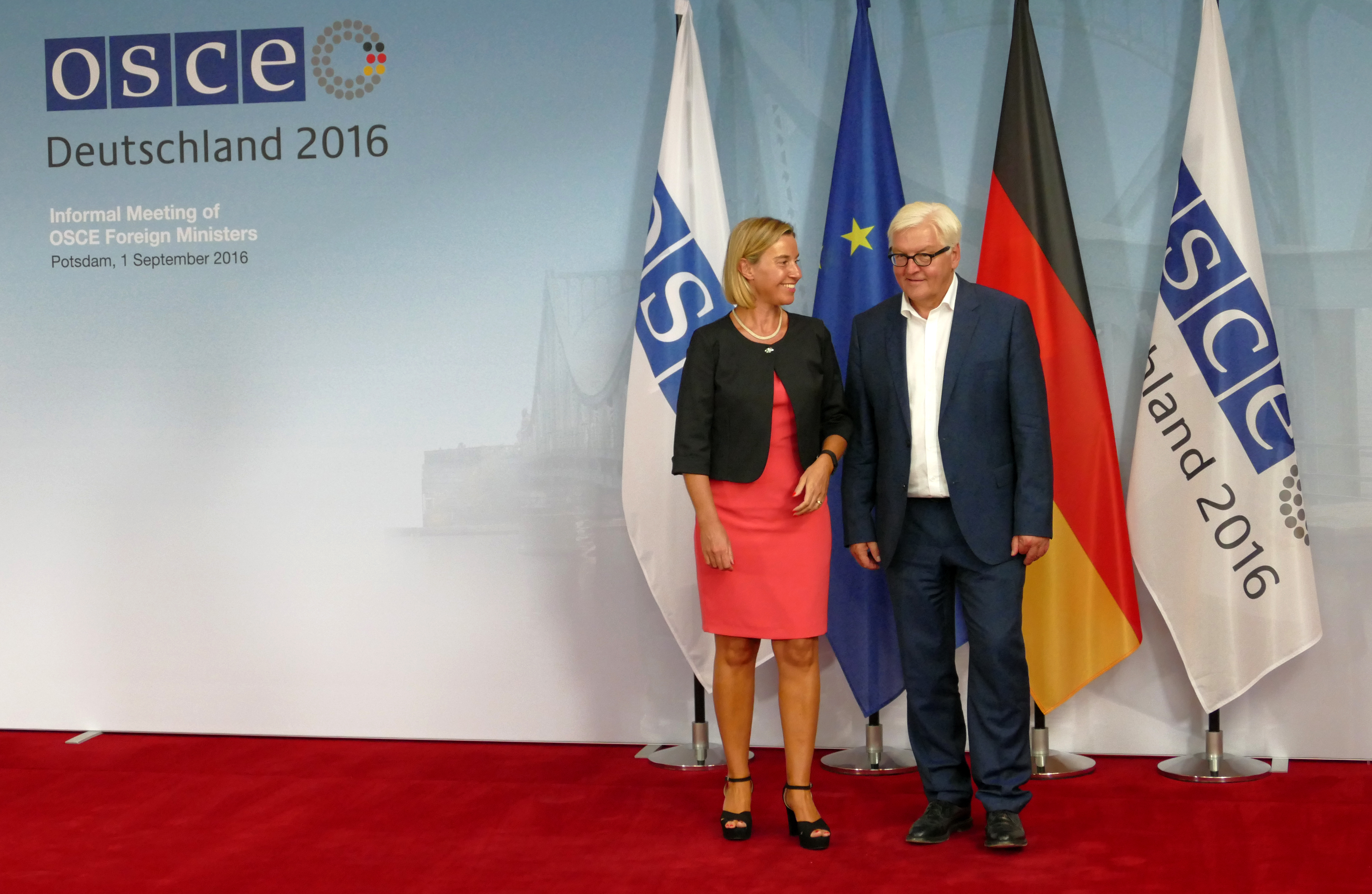The Importance of the OSCE in German Diplomacy
As an essential platform for multilateralism, the Organization for Security and Co-operation in Europe (OSCE) has always been important to German diplomacy, although in varying degrees. Historically, Germany’s support for the Conference on Security and Co-operation in Europe (CSCE) process was motivated by the aim of mitigating and ultimately overcoming the division of Germany.

From Germany’s perspective, the achievement of reunification and North Atlantic Treaty Organization (NATO) membership were largely thanks to the policy of détente and the CSCE process. Thus, German diplomacy was oriented toward the expansion of the CSCE into a system of collective security, most significantly through the 1994 Kinkel/Kooijmans initiative.
With the expansion of the European Union (EU) and NATO, this perspective began to recede into the background from the mid-1990s onward. In place of a “CSCE first” approach, Germany pursued an “EU first” strategy. Accordingly, the OSCE was pushed to the margins as an element of German diplomacy.
This changed significantly with Russia’s annexation of Crimea and the war in eastern Ukraine in 2014. Since then, the OSCE has been of central importance to German diplomacy in two respects. First, the Organization is an essential element of the regulation of the Ukraine crisis. German Chancellor Angela Merkel personally lobbied for the establishment of the OSCE Special Monitoring Mission (SMM) to Ukraine on March 21, 2014. Since June 2014, the Presidents of France, Russia, Ukraine and the German Chancellor have been seeking a political solution to the conflict within the framework of the Normandy Format. Second, tensions between Russia and the West have escalated to such a degree that the OSCE remains virtually the only platform for multilateral dialogue on a number of issues, including conventional arms control.
This has led to the revitalization of Germany’s activity in the OSCE: in 2016, Germany assumed the OSCE Chairmanship; in 2020, German diplomat Helga Schmid was elected Secretary General of the OSCE; and by the end of 2020, the German Bundestag spoke out in favor of an OSCE summit meeting in 2025, 50 years after the adoption of the Helsinki Final Act.
Wolfgang Zellner, PhD, is a Senior Research Fellow at the Institute for Peace Research and Security Policy (University of Hamburg) (IFSH). Until 2018, he was the representative director of the Institute and the Head of the Centre for OSCE Research (CORE). In 2013, he co-founded the OSCE Network of Think Tanks and Academic Institutions and coordinated this network until 2018. His main expertise relates to the European Security Order, conflict regulation and conventional arms control in Europe and the OSCE.
This publication is available the following languages (pdf):
- FRENCH: "L’importance de l’OSCE dans la diplomatie allemande"
- GERMAN: "Die Bedeutung der OSZE für die deutsche Diplomatie"




